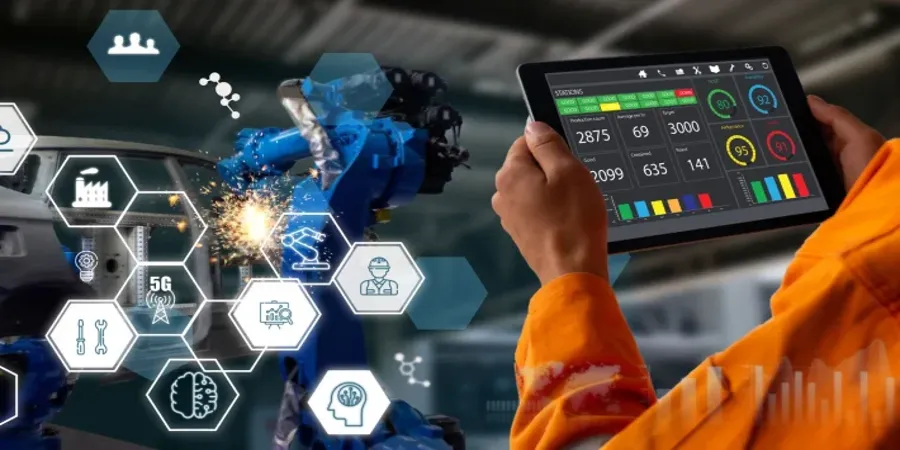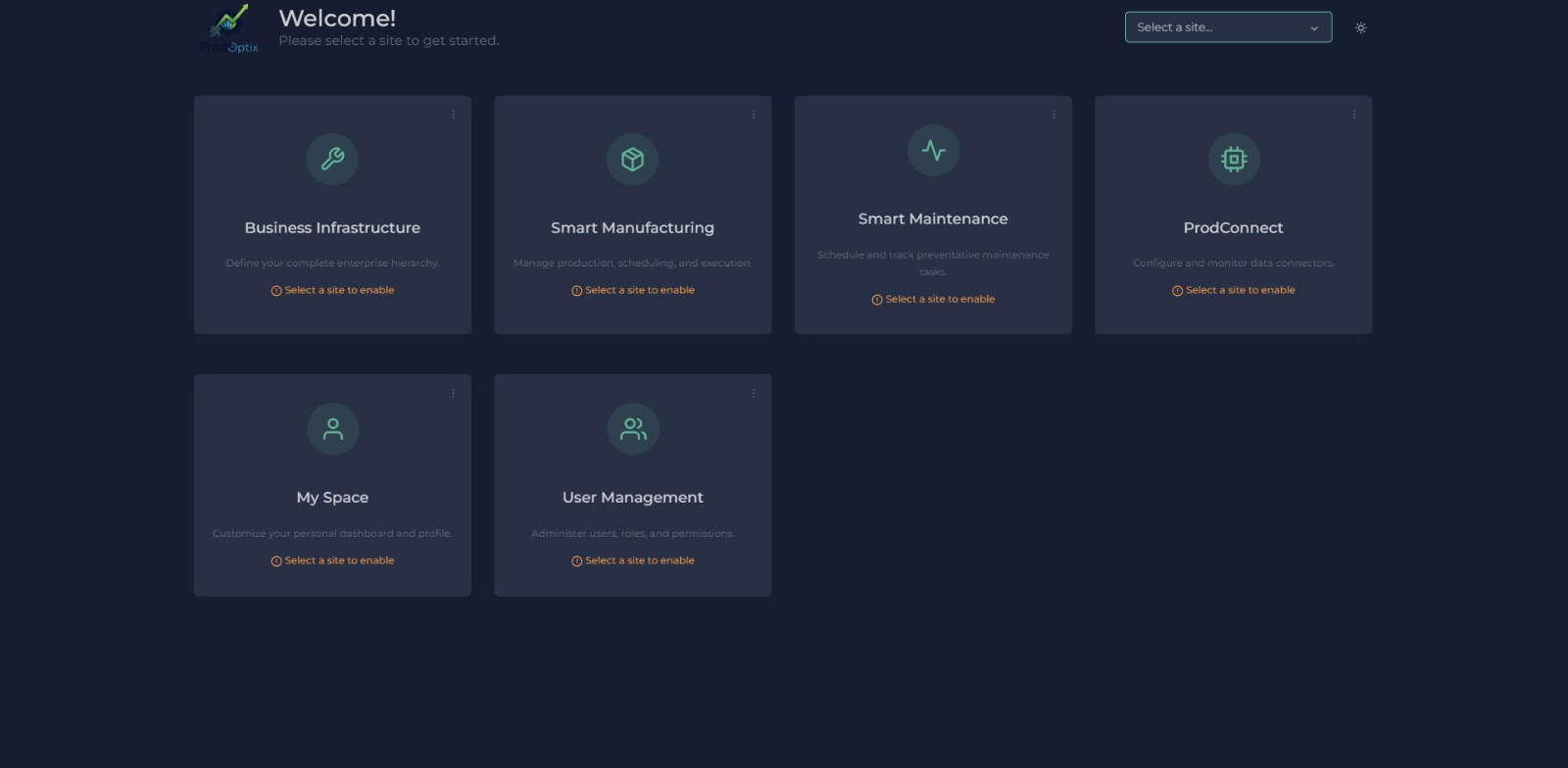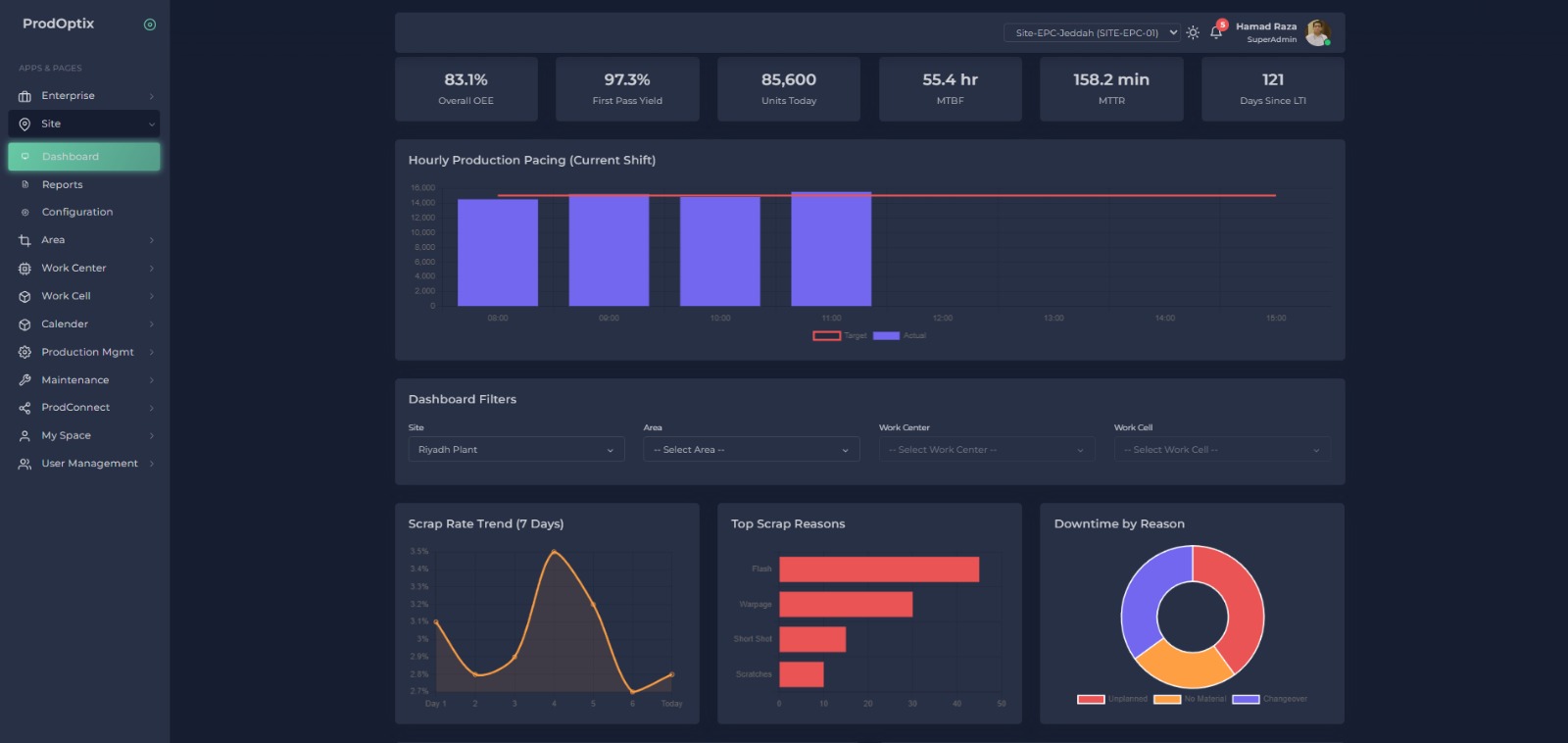What is ProdOptix ?
ProdOptix is a Saudi-developed Manufacturing Execution System (MES) platform designed to digitally
manage, monitor, and optimize manufacturing operations in real time across the shop floor and
enterprise levels. It provides end-to-end visibility, control, and execution of production
activities based on the ISA-95 standard hierarchy, ensuring structured integration between
enterprise systems and industrial operations.
ProdOptix is 100% Saudi-made — architected, engineered, and owned locally — and is
not a white-label or rebranded product. The platform’s core architecture, workflows, dashboards, and
functional modules are built in the Kingdom to address the real operational challenges faced by Saudi
manufacturers, including local production practices, industrial environments, and digital
transformation goals.
The platform delivers real-time shop-floor monitoring, work center execution control, and live KPIs
such as OEE, quality, downtime, and productivity, enabling manufacturers to move away from manual
data collection toward data-driven decision-making. ProdOptix integrates seamlessly with ERP systems
(e.g., Microsoft Dynamics), OPC UA, and IoT devices, creating a unified data flow from machines to
management dashboards.
All designed to support paperless operations, reduce downtime, improve throughput, and enhance
overall manufacturing performance. By combining local development, modern MES architecture, and
real-time industrial data, ProdOptix enables manufacturers to modernize operations, improve OEE, and
achieve scalable, future-ready smart manufacturing — while supporting local content and national
industrial digitalization initiatives.
Who Needs MES and Why?
A Manufacturing Execution System (MES) is crucial for industries that require
real-time monitoring, process optimization, and seamless production workflows. It helps businesses
improve efficiency, reduce costs, and ensure product quality.
01.
Large-Scale Manufacturing Companies
To manage high-volume production, track materials, and ensure product
consistency.
02.
Automotive & Aerospace Industries
To streamline complex assembly processes and maintain compliance with
strict industry regulations.
03.
Small & Medium Enterprises (SMEs)
To optimize resources, reduce waste, and compete with larger
manufacturers by increasing efficiency.
04.
Electronics & High-Tech Manufacturing
To track component usage, improve product traceability, and reduce
errors.
Most Asked Questions
MES connects machines, operators, and enterprise systems to collect,
analyze, and optimize production data. It ensures seamless communication between the shop
floor and business operations.
Key benefits include:
Real-time production monitoring
Improved product quality
Enhanced efficiency and reduced downtime,
Better compliance with industry standards
Optimized inventory and resource management
MES is widely used in industries such as automotive, aerospace,
electronics, pharmaceuticals, food & beverage, and heavy manufacturing to improve production
efficiency and ensure compliance.
No. ProdOptix is not a white-label system. It is a 100% Saudi-made MES
platform, fully designed, developed, and owned locally. The system’s core architecture,
source logic, functional modules, and roadmap are built in-house in Saudi Arabia and are not
rebranded, resold, or derived from any third-party MES product.
Yes. ProdOptix is fully developed, engineered, and maintained in Saudi
Arabia, with local ownership of the platform architecture, modules, and roadmap..
Yes, MES can leverage IoT sensors for real-time data collection and AI
for predictive maintenance, anomaly detection, and process optimization.
Costs vary based on company size, customization needs, integration
complexity, and licensing fees. ROI is typically realized through efficiency gains and cost
savings.


